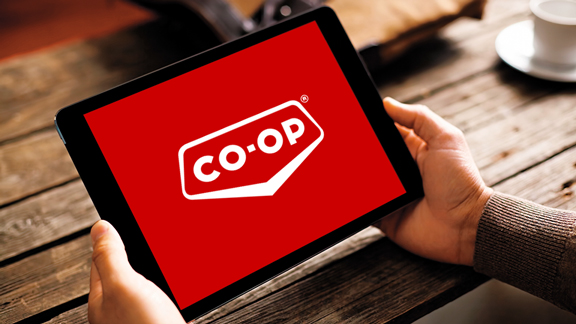Co-op Equity FAQ
 Co-op Equity FAQ
Co-op Equity FAQ

What is Equity? How does it work?
By holding equity in Riverbend Co-op, you are a part owner. Each time you make a purchase and provide your Riverbend Co-op membership number, your purchases are recorded. At the end of the fiscal year, a portion of your purchases may be returned in the form of a cash and equity allocation. The more you purchase, the higher your potential allocation is.
You paid a percentage of my allocation in cash, what happens to the equity portion?
The equity portion of your allocation remains in your share account with Riverbend Co-op. These funds are “loaned” to Riverbend Co-op to help finance the business, and maintain and upgrade assets to ensure ongoing success.
When can I get my equity paid out?
Provisions for payments of equity for individual membership accounts are made for:
• Estates (with Death Certificate)
• Members over 67 years of age
• Members who move out of the trading area (with proof of address change)
An exception to the provision of moving out of the trading area is for members who make an application for membership while currently residing outside the trading area. To satisfy the moved-away provision, you must move out of the community you resided in when the application for membership was made and still be outside the Riverbend trading area.
An Application for Equity Withdrawal Form must be provided to Riverbend Co-op in each of these instances. The form can be completed online here or can be picked up at any of our locations. All requests are subject to Board approval.
Is a corporate membership different than an individual membership?
Yes, since a corporation is a separate legal entity and its shareholders can change without impacting the holdings of the corporation, there are different considerations for a Corporate Membership:
• A corporation is separate from its shareholder(s) and does not age, therefore there is no provision of an overage payment of equity.
• A corporation is separate form its shareholder(s) and continues to exist and operate after the death of a shareholder, therefore there is no provision for an equity payment to an estate.
• A corporation whose corporate office permanently relocates AND who ceases to operate within the Riverbend Co-op trading area may apply for withdrawal of equity with adequate documentation of relocation.
• If the corporate office resides outside the trading area at the time of the application for membership, a relocation only applies when a new permanent address for the registered office is established (outside the community listed on the original membership application).
• A request for withdrawal of equity due to dissolution can be made with letter of intent from either accountant or lawyer.
An Application for Equity Withdrawal Form must be provided to Riverbend Co-op in each of these instances. The form can be completed online here or can be picked up at any of our locations. All requests are subject to Board approval.
Why didn’t I get a cheque?
The cash repayment is based on your equity earned in previous years as well as the current year’s allocations. A cheque is only issued when a cash payment is more than $10.
Why is income tax taken off?
Riverbend Co-op is required to submit a minimal amount of tax to Canada Revenue Agency. Fifteen percent of any allocation over $100 is submitted on your behalf. When filing your income tax, you are entitled to include the deduction as a tax credit (box 22 of the T4A). If a member’s purchases are for personal use only, the allocation (box 30 of the T4A) does not need to be included as part of your income. If you are claiming some or all of the purchases as business expenses, then you must include an applicable portion of the allocation as income on your income tax form.
What is the GST Allocation?
Riverbend Co-op determines a rate of GST allocation based off of all GST applicable purchases in the fiscal year. This rate is then used with the member’s earnings (allocations) from the same year to allocate GST to the member. If you are registered for GST purposes, the portion of the GST related to business use must be included on line 104 of your next GST return.
What happens to a cheque if it isn’t received and deposited by the member?
Any cheques not deposited by the member go stale after 6 months. This amount is reversed back into the member's equity before the end of the fiscal year.
To become a member click here.

